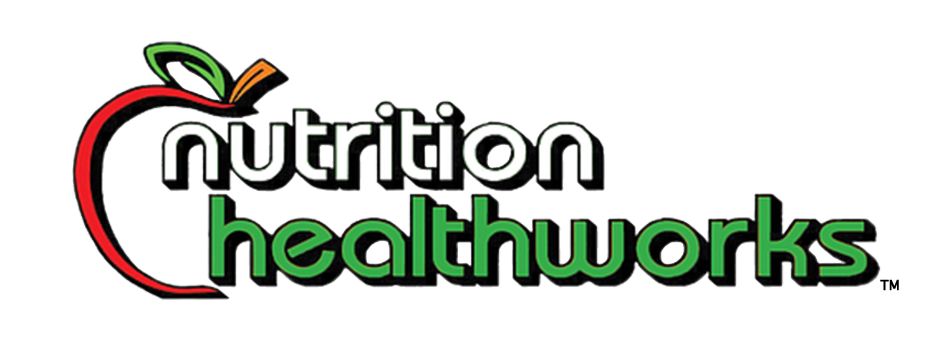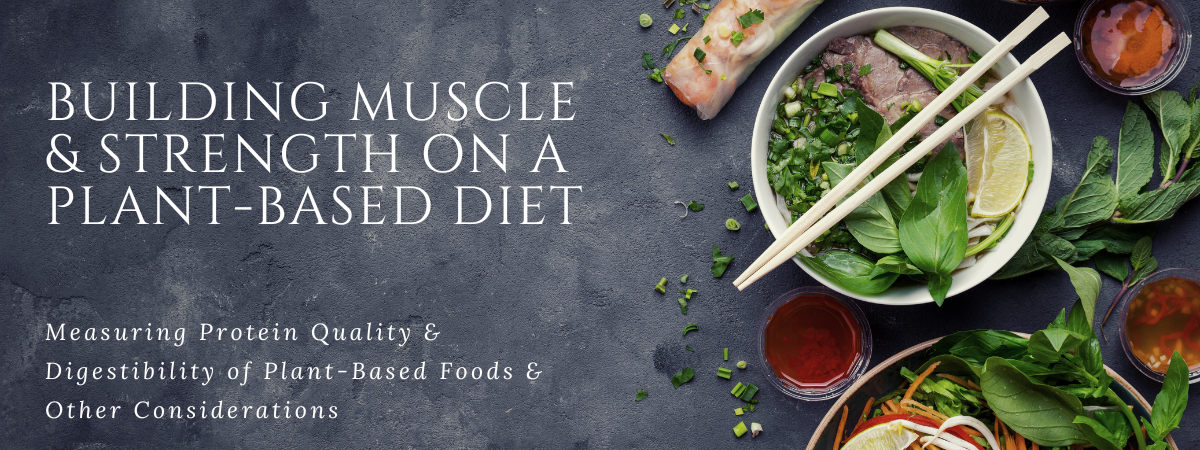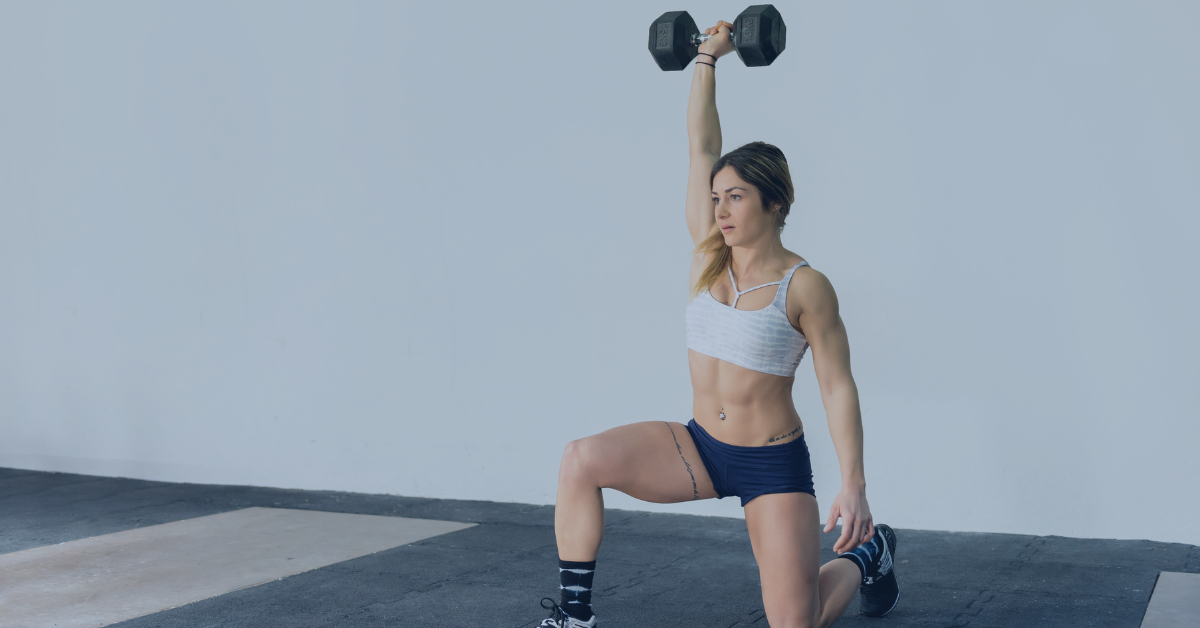How a Plant-Based Diet Can Provide What Your Body Needs To Grow Stronger!
For those looking to increase their intake of plant-based foods while building overall muscle, the question can be, “Is this possible”? Meat and animal protein have become synonymous with strength and muscle, but research shows this idea shouldn’t stop you from utilizing plant-based proteins to achieve your muscle and strength-building goals.
Understanding Plant-Based Protein
To build muscle, you must eat enough protein. Depending on your overall goals and current biometrics, the amount of protein you need will differ. You can speak with a Registered Dietitian who can help calculate an appropriate recommended intake based on your unique information. Protein is digested in the body into amino acids which are used as the building blocks of everything in the body. The kind of protein you eat can provide different amino acids depending on the food sources. Animal foods contain what are called complete proteins, meaning they contain all nine essential amino acids, aka proteins our bodies cannot make on their own. Plant-based proteins, with the exception of soy and quinoa, do not contain complete proteins. You can combine different plant foods to acquire all nine essential amino acids as shown later on. Regarding different protein sources, it is important to note the digestibility, or the amount of a nutrient our bodies can digest and absorb, of protein from different foods. If you eat foods with lower digestibility, you may need to eat more to have the same impact as more highly digestible foods.
Measuring Protein Quality
Of these essential amino acids, leucine is vital for building muscle. To promote muscle synthesis, ~2.7g of leucine or 10.9g of essential amino acids should be eaten. Whey, a protein found in dairy products, has been shown to contain enough leucine and essential amino acids to activate muscle synthesis. Plant-based foods that can provide equal amounts of leucine include potato, brown rice, pea, and soy. However, these foods do not contain all the essential amino acids and should be combined with other food sources to create a complete protein. For example, pea and soy proteins contain leucine but are low in the amino acid methionine. Combining peas with corn, hemp, or brown rice, which contain methionine, can create a complete protein.3 It was previously thought incomplete plant protein foods needed to be combined at the time of eating to ensure the body could create complete proteins. However, the body is capable of combining amino acids, or proteins, in the body at any time to create complete proteins. Therefore, you don’t have to combine plant protein sources at meals to make sure you are eating complete proteins. 4
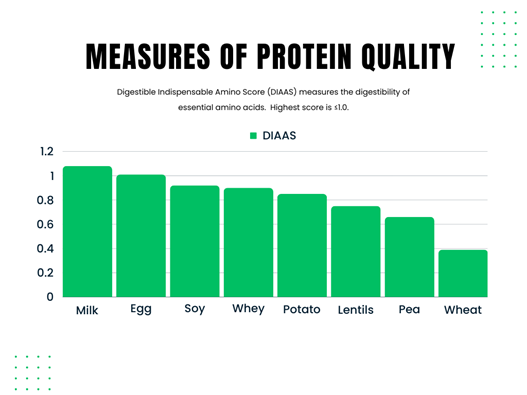
Measuring Digestibility Score
The lower digestibility score of plant-based proteins may be impacted by nutrients such as fiber and tannins which may inhibit the absorption of protein in plant foods. While these so-called “anti-nutrients” do provide health benefits, they are counterproductive to protein absorption. Fiber is important for gut health which might play a role in improved performance for plant-based athletes. Too much protein can be detrimental to “good” gut bacteria growth, so choosing foods with fiber, like plant-based options, may help support healthy gut flora and long-term performance. 5

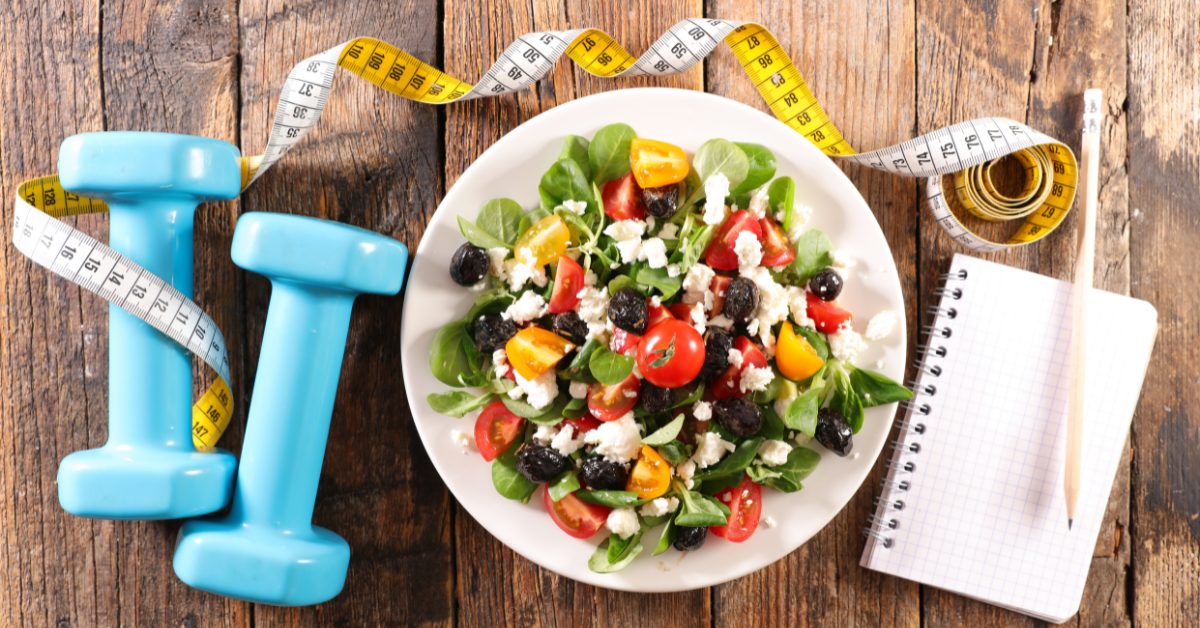
Plant-Based Isolates
To account for these “anti-nutrients”, consuming greater amounts of whole plant foods may provide sufficient protein to be absorbed to reach the desired protein requirements. Another way to maximize the protein obtained from plant-based food sources is to eat protein powder isolate or concentrate. Plant-based protein in the form of isolates can increase the absorption and digestibility of protein to that of animal protein sources.6,7
Consideration for Iron in Plant-Based Foods
In addition to protein, iron is a nutrient of consideration in plant-based proteins that is better absorbed from animal foods. Iron is part of the system that provides oxygen throughout the body and supports muscle synthesis. There are two types of iron: heme and non-heme iron. Animal foods contain both heme and non-heme iron and plant-based or iron-fortified foods only contain non-heme iron. Non-heme iron is not as well digested as heme iron so you must eat more of it to reach recommended intake levels. Recommended daily intake will vary depending on sex, age, and if you are pregnant or lactating. If you are concerned about your iron intake, talk with your primary care provider and dietitian. 5
Can Plant Based Diets Support Muscle Growth?
Research shows well-planned plant-based diets can support muscle growth just as well as omnivorous diets, diets containing both plant and animal foods. If choosing to consume plant-based protein for building muscle and strength, be sure to choose more highly digestible foods or increase the number of whole foods to ensure adequate protein intake.8,9 Be sure to talk with your dietitian about how much protein is recommended for you to help you reach your muscle and strength building goals.
Hannah Woods
RD, LDN
Sources:
1. Hertzler, S. R., Lieblein-Boff, J. C., Weiler, M., & Allgeier, C. (2020). Plant Proteins: Assessing Their Nutritional Quality and Effects on Health and Physical Function. Nutrients, 12(12), 3704. https://doi.org/10.3390/nu12123704
2. Herreman, L., Nommensen, P., Pennings, B., & Laus, M. C. (2020). Comprehensive overview of the quality of plant‐ and animal‐sourced proteins based on the digestible indispensable amino acid score. Food Science & Nutrition, 8(10), 5379–5391. https://doi.org/10.1002/fsn3.1809
3. Gorissen, S. H. M., Crombag, J. J. R., Senden, J. M. G., Waterval, W. A. H., Bierau, J., Verdijk, L. B., & van Loon, L. J. C. (2018). Protein content and amino acid composition of commercially available plant-based protein isolates. Amino acids, 50(12), 1685–1695. https://doi.org/10.1007/s00726-018-2640-5
4. Young, V. R., & Pellett, P. L. (1994). Plant proteins in relation to human protein and amino acid nutrition. The American journal of clinical nutrition, 59(5 Suppl), 1203S–1212S. https://doi.org/10.1093/ajcn/59.5.1203S
5. Pohl, A., Schünemann, F., Bersiner, K., & Gehlert, S. (2021). The Impact of Vegan and Vegetarian Diets on Physical Performance and Molecular Signaling in Skeletal Muscle. Nutrients, 13(11), 3884. https://doi.org/10.3390/nu13113884
6. Gausserès, N., Mahé, S., Benamouzig, R., Luengo, C., Ferriere, F., Rautureau, J., & Tomé, D. (1997). [15n]-labeled pea flour protein nitrogen exhibits good ileal digestibility and postprandial retention in humans. The Journal of Nutrition, 127(6), 1160–1165. https://doi.org/10.1093/jn/127.6.1160
7. Pinckaers, P. J., Trommelen, J., Snijders, T., & van Loon, L. J. (2021). The anabolic response to plant-based protein ingestion. Sports Medicine, 51(S1), 59–74. https://doi.org/10.1007/s40279-021-01540-8
8. Hevia-Larraín, V., Gualano, B., Longobardi, I., Gil, S., Fernandes, A. L., Costa, L. A., Pereira, R. M., Artioli, G. G., Phillips, S. M., & Roschel, H. (2021). High-protein plant-based diet versus a protein-matched omnivorous diet to support resistance training adaptations: A comparison between habitual vegans and omnivores. Sports Medicine, 51(6), 1317–1330. https://doi.org/10.1007/s40279-021-01434-9
9. Boutros, G. H., Landry-Duval, M.-A., Garzon, M., & Karelis, A. D. (2020). Is a vegan diet detrimental to endurance and muscle strength? European Journal of Clinical Nutrition, 74(11), 1550–1555. https://doi.org/10.1038/s41430-020-0639-y
